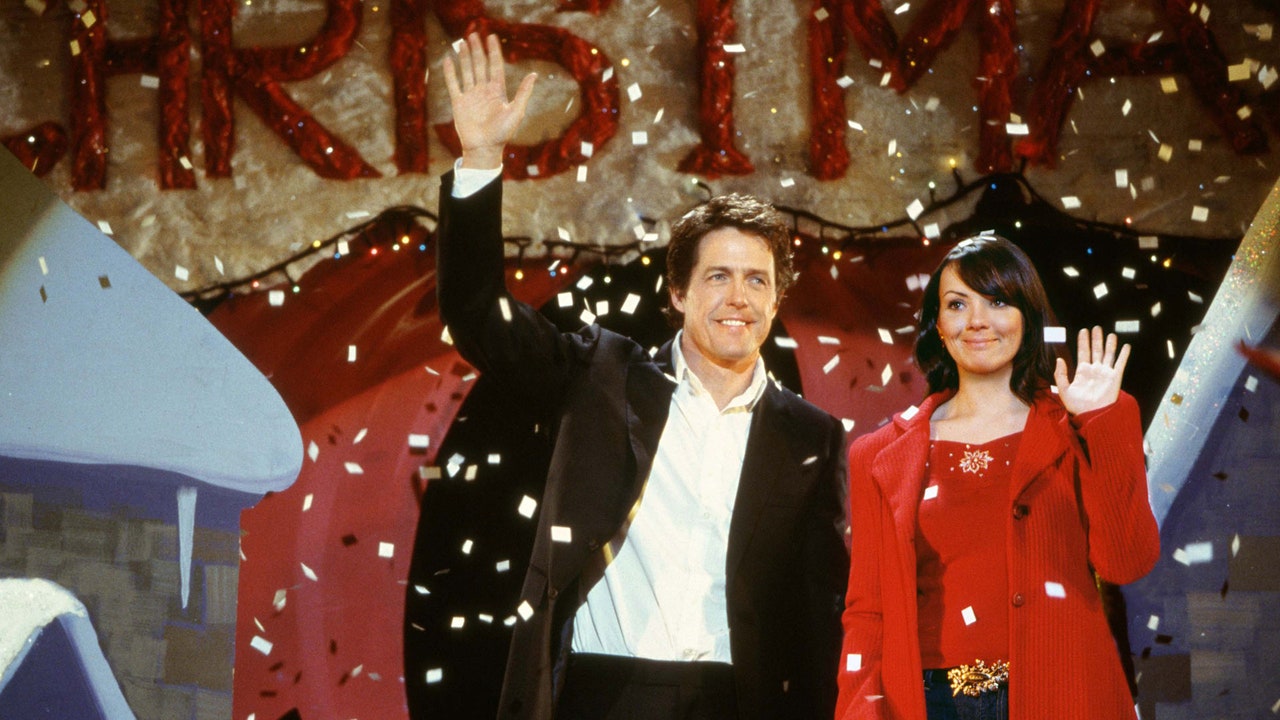
So here’s a secret. Despite being an avid Christmas film lover, I had never seen Love Actually until very recently. Yes, gentle reader, I heard your gasp from beyond my Google doc. How? Why? Sure, it would be far more interesting if I said it’s because it’s an unfunny, terrible, cringey film. The less exciting truth is that I just never got around to it.
The festive season is officially upon us, so what better time to give it a whirl? After all, it’s been 21 years since Richard Curtis’s ensemble rom-com premiered and became a permanent fixture in festive viewing. First impressions? It’s a heartwarming flick jam-packed with a glittering cast, cheating scandals and a Christmas nativity, making it, at face value, a perfectly fine Christmas film. There’s zingy one-liners (“Where the fuck is my fucking coat?” has been swirling around my head for a good few days now) and epic declarations of love in an airport. All seems pretty good to me.
But it’s also the same film that makes “fat” jokes and objectifies women at almost every turn. Watching in 2024, you can’t help but want more for the female characters. Every woman is either a scorned wife, a cheating girlfriend or a pretty young thing. Every storyline revolves around what a man wants and needs from a woman. And pretty much all of the female characters serve as mere plot devices.
Aurelia (Lúcia Moniz) is probably the most obvious example of the above. She’s the gorgeous, non-English-speaking, Portuguese love interest of Jamie (Colin Firth), who works as a housekeeper in his rented French villa. To begin with, Jamie doesn’t pay much attention to Aurelia at all. It’s not until Jamie’s papers get blown into the lake and Aurelia jumps in to retrieve them that she becomes of interest. Up until that point, we’ve barely seen any of Aurelia’s personality, and we don’t know anything about her. Naturally, their story ends with Jamie learning Portuguese and proposing in Aurelia’s father’s restaurant. Not quite sure how we got there.
Similarly, Natalie (Martine McCutcheon) is the newly elected prime minister’s (Hugh Grant) assistant, and while she has a more fleshed-out backstory (we know she’s recently been through a break-up and moved back in with her parents in Wandsworth), she’s still just the so-called “chubby” girl in 10 Downing Street. On a state visit, the US president objectifies her almost instantly, and she is the one to be punished for it, with the prime minister exiling her to a different department. Natalie is painted to be too much of a distraction to the PM, but really, she’s just existing. Their storyline ends with their first kiss backstage at a school nativity being revealed to the entire audience as the curtains are drawn back. What the hell, sure.
Perhaps the worst storyline of all, though, is that of Laura Linney’s Sarah. She’s been pining after her co-worker, Karl (Rodrigo Santoro), for years, and it finally comes to light that he likes her, too. They share an intimate moment before being interrupted by a phone call from her brother, who has mental health issues. For some reason, this means that she must choose between her brother and Karl… forever? In the world of Love Actually, if you’re a woman, romance always comes at a price – just ask Emma Thompson’s Karen.
In the end, the film wants to show love in every messy form – romantic, familial, platonic – and it does, but through a decidedly male gaze. “If you look for it, I’ve got a sneaky feeling you’ll find that love actually is all around,” proclaims the prime minister in the intro. Easy for you to say, Hugh.





